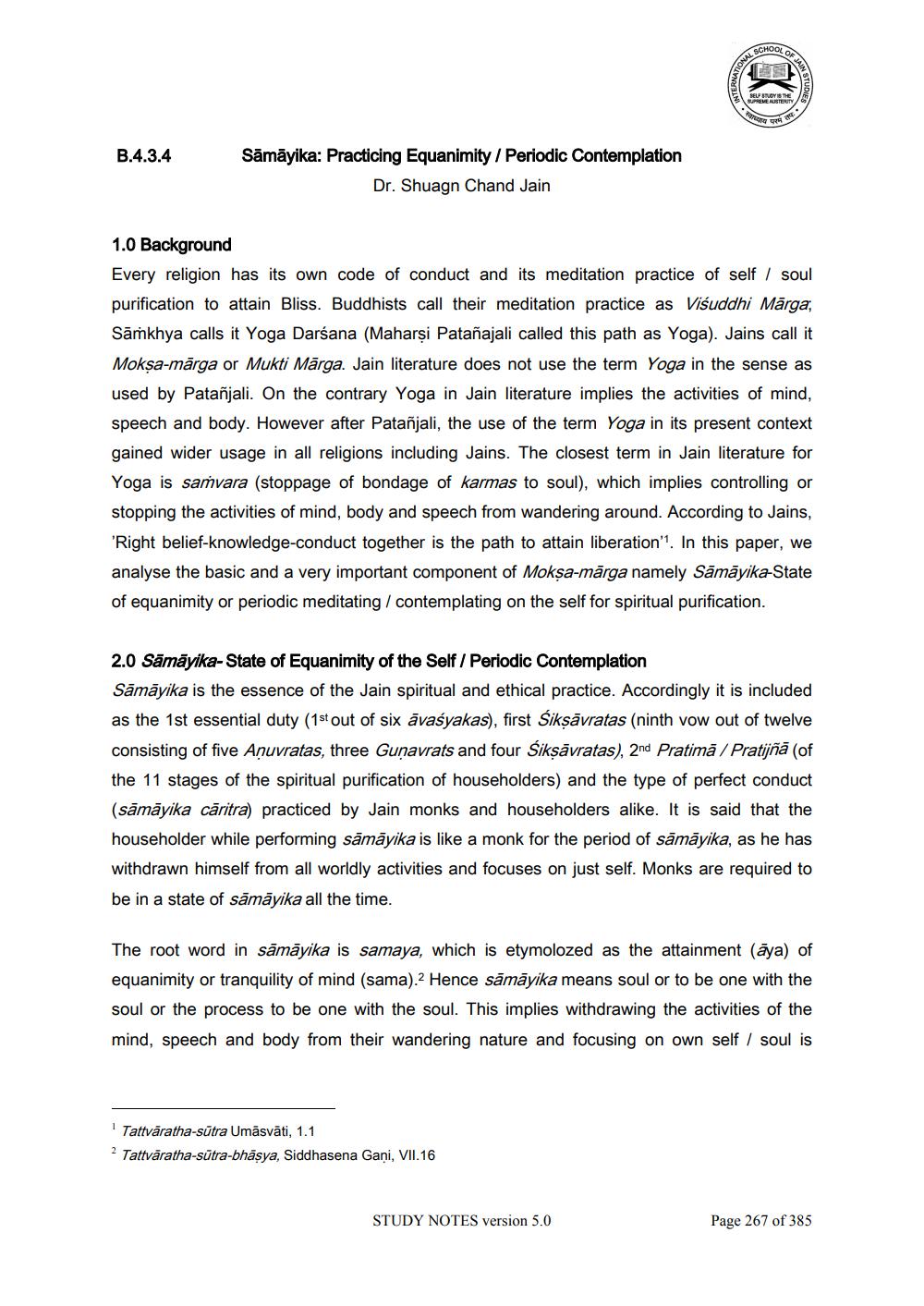________________
B.4.3.4
Sāmāyika: Practicing Equanimity / Periodic Contemplation
Dr. Shuagn Chand Jain
1.0 Background Every religion has its own code of conduct and its meditation practice of self / soul purification to attain Bliss. Buddhists call their meditation practice as Visuddhi Mārga, Sāṁkhya calls it Yoga Darsana (Maharsi Patañajali called this path as Yoga). Jains call it Moksa-mārga or Mukti Mārga. Jain literature does not use the term Yoga in the sense as used by Patañjali. On the contrary Yoga in Jain literature implies the activities of mind, speech and body. However after Patanjali, the use of the term Yoga in its present context gained wider usage in all religions including Jains. The closest term in Jain literature for Yoga is saṁvara (stoppage of bondage of karmas to soul), which implies controlling or stopping the activities of mind, body and speech from wandering around. According to Jains, 'Right belief-knowledge-conduct together is the path to attain liberation'!. In this paper, we analyse the basic and a very important component of Mokşa-mārga namely Sāmāyika-State of equanimity or periodic meditating / contemplating on the self for spiritual purification.
2.0 Sāmāyika-State of Equanimity of the Self / Periodic Contemplation Sāmāyika is the essence of the Jain spiritual and ethical practice. Accordingly it is included as the 1st essential duty (1st out of six avaśyakas), first Śikṣāvratas (ninth vow out of twelve consisting of five Aņuvratas, three Guņavrats and four Śikṣāvratas), 2nd Pratimā / Pratijñā (of the 11 stages of the spiritual purification of householders) and the type of perfect conduct (sāmāyika cāritra) practiced by Jain monks and householders alike. It is said that the householder while performing sāmāyika is like a monk for the period of sāmāyika, as he has withdrawn himself from all worldly activities and focuses on just self. Monks are required to be in a state of sāmāyika all the time.
The root word in sāmāyika is samaya, which is etymolozed as the attainment (aya) of equanimity or tranquility of mind (sama). Hence sāmāyika means soul or to be one with the soul or the process to be one with the soul. This implies withdrawing the activities of the mind, speech and body from their wandering nature and focusing on own self / soul is
Tattvāratha-sūtra Umāsvāti, 1.1 2 Tattvāratha-sūtra-bhasya, Siddhasena Gani, VII.16
STUDY NOTES version 5.0
Page 267 of 385




